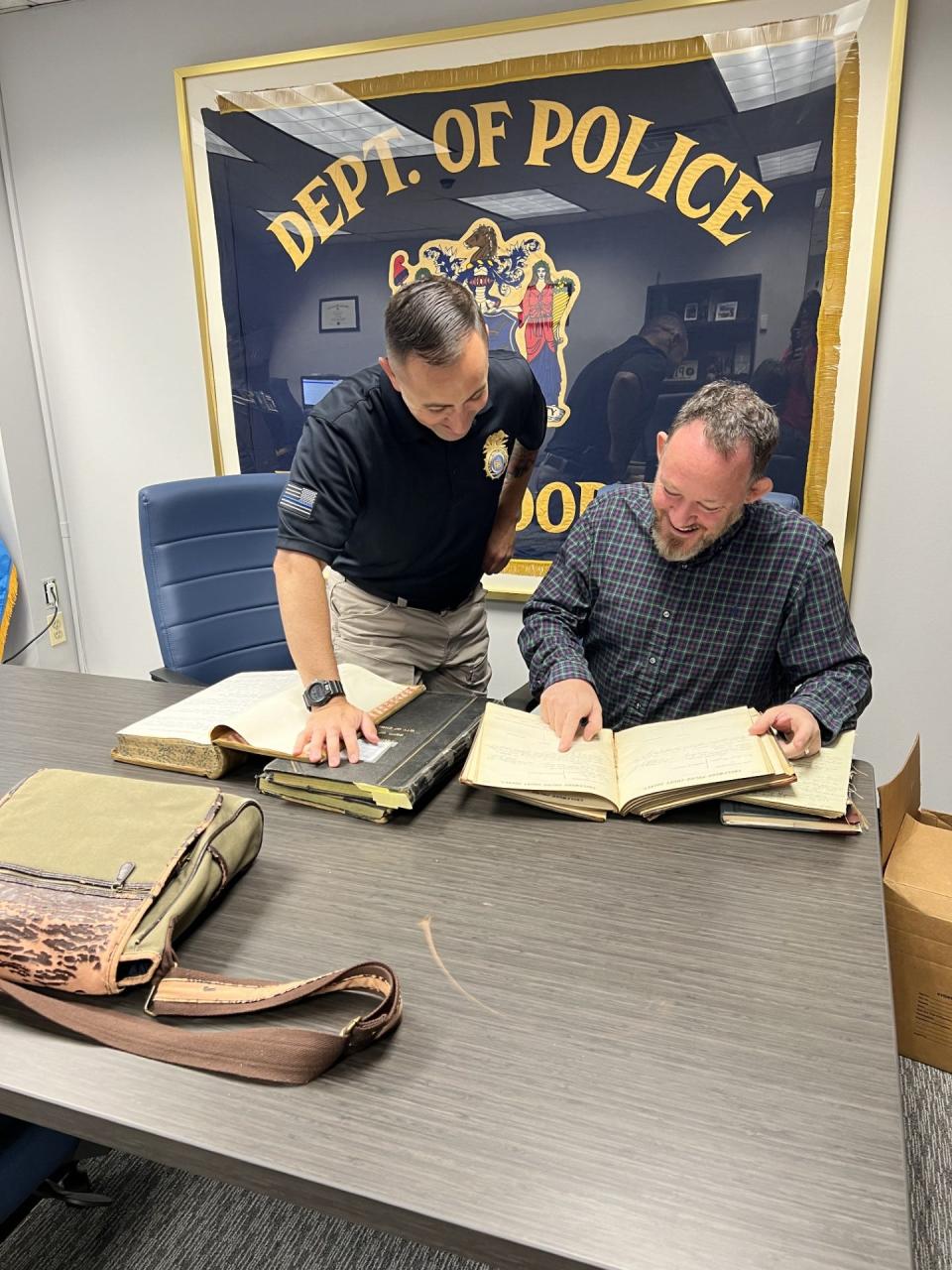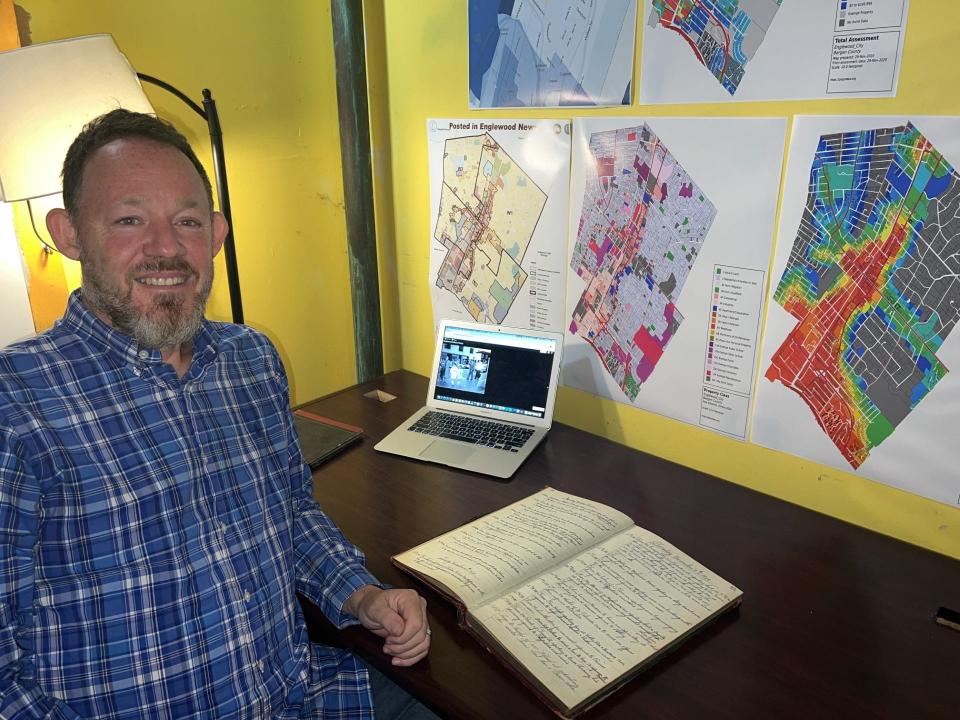Ramapo professor gets grant to chronicle history of Englewood's Black, immigrant areas
- Oops!Something went wrong.Please try again later.
A Ramapo College professor's new project is putting a spotlight on the history of Englewood.
David Colman, an associate professor of African American history at Ramapo, has received a $15,000 grant from the New Jersey Council for the Humanities that will finance his initiative, “Englewood Makes History." The grant was one of 22 awarded by the council that were announced on July 13.
Over the next few months, Colman and several colleagues from the college, with the assistance of Englewood residents, will collect and digitize archival materials — diaries, photos, family letters and more — in an effort to chronicle the lives of African American residents in the city's 4th Ward and immigrant communities in the 3rd Ward and the challenges they faced.
The project, including a website to be launched this fall, aims to tell the story of the forgotten residents in a Bergen County city known mainly for its founding industrialists and bankers. Englewood's elite primarily resided in an area known as "the Hill" that was the launching pad for politicians such as U.S. senator and diplomat Dwight Morrow, the father-in-law of famed aviator Charles Lindbergh.

But there are other stories that need to be preserved as well, said Colman, who lives in Englewood and grew up in the 3rd Ward.
"There are parts of Englewood history that aren't fully excavated and mined, which is the story of the 3rd and 4th wards, literally across the railroad tracks," he said in an interview. "Those are the stories of immigrants, Italian and Irish and Jewish immigrants from Europe who come to Englewood to often work in some capacity servicing the mansions and the elites on the Hill."
It's also the story of the 4th Ward neighborhood known as "Little Texas" that was historically the African American section of town, Colman added. The origin of the "Little Texas" nickname is a "mystery" that he hopes to solve as part of the "Englewood Makes History" project.
The initiative will also create a digital map of landmarks in both wards, Colman said.
Local legends: And they don't stop: NJ's Sugarhill Gang to play NJPAC as hip-hop celebrates 50 years
Construction spurs discussion
Colman, 53, said the project grew out of discussions about how to build a cohesive community as new developments spring up in Englewood. There's particular concern about how the changing landscape will affect recent immigrants and longtime African American residents, he said.
"Where are new condos going to be built? Are they going to be in the 4th Ward? Are they going to disproportionately impact immigrant and Black communities?" Colman asked. "I think we have to understand history to understand the sensitivities to those current debates."

The project started after Colman spoke earlier this year at a community meeting where he addressed racial and religious tensions in Englewood over the years by talking about the history of race and class in the city.
The Ramapo professor said the people who attended the meeting encouraged him to do an ongoing history project. He began gathering documents and photos to add to historical materials he had already collected over the years.
That includes detailed logs from the Englewood Police Department that date back to 1899 and a 1962 report on race relations in Englewood's school system that provides insight not only on the communities in the 3rd and 4th wards, but across the city.
More: Federal agencies support lawsuit against Murphy to keep Elizabeth Detention Center open
How local residents can contribute
Colman hopes he will be able to get more materials, stored away in homes in those areas, that residents may not even realize are historically important. He is looking for items like diaries, letters from family members, photos, old newspapers and magazines relevant to the history of Englewood.
"Sometimes, people don't even necessarily think what they have is significant. I think that's also an important part of this project, which is understanding that you are important even if you may not think that your position or status is," Colman said. "You are [important], and you have a story to tell that's interesting, and we can help tell that with you."
Local residents who want to contribute materials to the Englewood Makes History project can contact Colman at dcolman@ramapo.edu and englewoodmakeshistory@gmail.com.
Ricardo Kaulessar covers race, immigration and culture for NorthJersey.com. For unlimited access to the most important news from your local community, please subscribe or activate your digital account today.
Email: kaulessar@northjersey.com
Twitter: @ricardokaul
This article originally appeared on NorthJersey.com: Ramapo College professor gets grant to study Englewood NJ minorities

